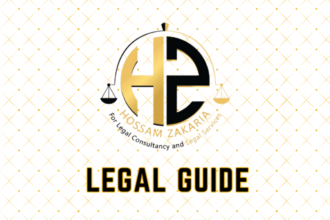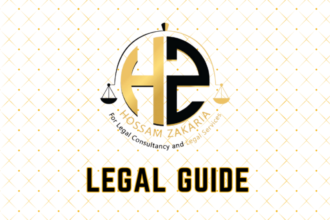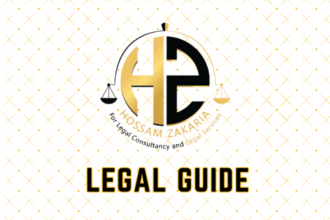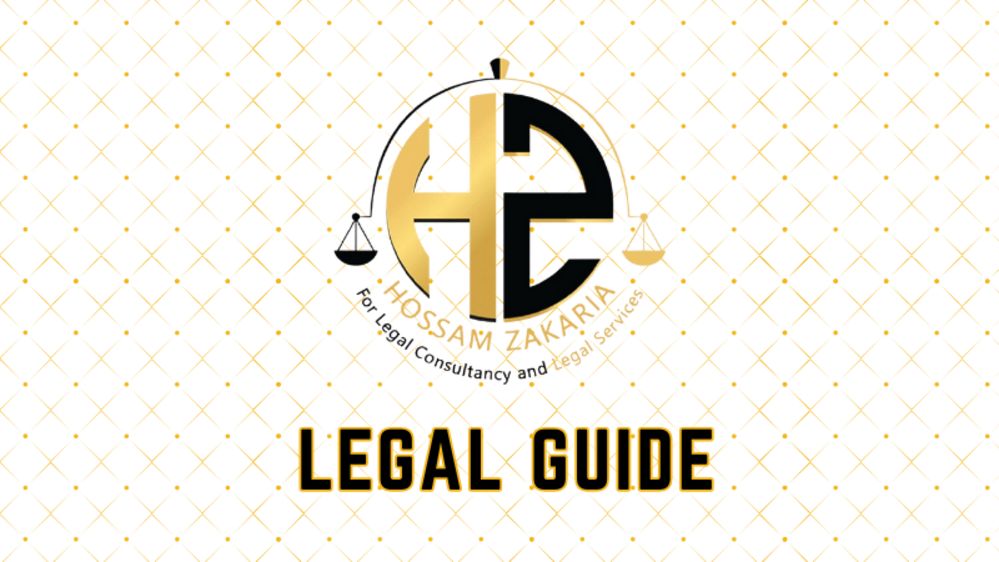Introduction: Banking Law Compliance in Saudi Arabia – A Priority for UAE Stakeholders
In a rapidly changing financial landscape, Saudi Arabia’s banking sector is undergoing significant regulatory transformation, driven by both domestic priorities and international best practices. With the Saudi Arabian Monetary Authority (SAMA) intensifying compliance requirements and the introduction of new legal updates shaping the operational terrain, banking law compliance is no longer a box-ticking exercise. Instead, it is a strategic necessity for organizations seeking to mitigate risks, enhance cross-border transactions, and foster business confidence across the Gulf Cooperation Council (GCC) region.
For UAE-based businesses, legal practitioners, and executives active in financial services or cross-GCC operations, understanding the nuances of Saudi banking law is essential. Not only does it impact bilateral trade and investment, but it also sets the standard for compliance expectations throughout the region. This expert analysis delves into the most critical aspects of banking law in Saudi Arabia, offering professional guidance on best practices, compliance frameworks, risk mitigation tools, and the implications of recent legal developments for the UAE’s legal and business environment.
Why Now? The last three years have seen sweeping regulatory changes to strengthen anti-money laundering (AML) measures, cybersecurity, data protection, and consumer protection. These shifts impact everything from due diligence in transactional banking to board-level governance responsibilities—highlighting the urgent need for proactive legal counsel and compliance strategy.
Table of Contents
- Overview of Saudi Banking Law and Recent Developments
- Key SAMA Guidelines and Regulatory Mandates
- Anti-Money Laundering and Counter-Terrorism Financing: Core Compliance Standards
- Data Protection and Cybersecurity in Saudi Banking Law
- Corporate Governance and Risk Management Under Saudi Regulations
- Enforcement, Penalties, and Legal Remedies
- Practical Compliance Strategies for UAE Stakeholders
- Case Studies and Practical Scenarios
- Future Trends and Recommendations for Sustainable Compliance
- Conclusion: Shaping Compliance Culture Across Borders
Overview of Saudi Banking Law and Recent Developments
Saudi Arabia’s banking regulation landscape is shaped by a robust body of national legislation, complemented by SAMA’s executive authority. The Banking Control Law (Royal Decree No. M/5 of 1386H, corresponding to 1966) serves as the foundational legal framework, while subsequent regulations—particularly those enacted in response to international standards like the Basel Accords and the Financial Action Task Force (FATF)—ensure ongoing alignment with global best practices.
Key Drivers of Change:
- SAMA Circulars and Updates (2022-2024): Enhanced obligations related to anti-money laundering, consumer finance, digital banking operations, and cybersecurity.
- Enactment of the New Companies Law (2022): Modernized governance requirements impacting banks and financial institutions.
- Personal Data Protection Law (PDPL, 2023): Stronger controls over data privacy, risk management, and digital financial products.
- Consumer Protection Framework (2022): Comprehensive rights for retail and SME clients of banks, supported by explicit SAMA guidelines on grievance mechanisms.
With UAE businesses increasingly entering the Saudi market, these updates necessitate careful cross-border compliance planning and operational readiness. In particular, the convergence of regulatory priorities between the UAE and Saudi Arabia—such as AML/CFT, data protection, and financial consumer rights—warrants a harmonized approach to legal and compliance functions.
Key SAMA Guidelines and Regulatory Mandates
SAMA’s Supervisory Role
As the central bank and financial market supervisor, the Saudi Arabian Monetary Authority (SAMA) holds wide-ranging powers under the Banking Control Law and its executive regulations. SAMA issues periodic guidelines, conducts risk-based supervision, and enforces compliance through audits and direct inspections. Its remit covers both conventional and Islamic banks, digital banking platforms, finance companies, and payment service providers.
Core Regulatory Instruments Issued by SAMA
- Corporate Governance Regulations (updated 2023): Articulate board and management responsibilities, audit committee oversight, risk management protocols, and requirements for independent directors.
- Anti-Money Laundering and Counter-Terrorism Financing Rules (2022): Mandate robust customer due diligence (CDD), enhanced due diligence (EDD) for high-risk clients, ongoing transaction monitoring, and immediate reporting of suspicious transactions.
- Cybersecurity Framework (2022, amended 2023): Prescribes technical, organizational, and incident response measures on par with international standards.
- Consumer Protection Principles (SAMA Circular 441, 2022): Explicit responsibilities concerning disclosure, fairness, transparency, and complaint handling.
Integration with International Standards
In line with Basel III framework and FATF recommendations, SAMA’s guidelines closely mirror global benchmarks, promoting financial stability, integrity, and consumer trust. UAE organizations with Saudi market exposure must therefore anticipate stricter scrutiny and higher compliance expectations.
Anti-Money Laundering and Counter-Terrorism Financing: Core Compliance Standards
Legal Foundation
The Anti-Money Laundering Law (Royal Decree No. M/20 of 5/2/1439H, 2017 as amended) and its Implementing Regulations (2019, updated 2022) are the cornerstone of the Kingdom’s efforts to combat illicit finance and align with FATF requirements. SAMA’s detailed AML/CFT rules establish an expansive compliance framework covering:
- Customer Identification and Due Diligence (CDD): Stringent KYC protocols for onboarding and ongoing client diligence, especially for politically exposed persons (PEPs) and cross-border clients.
- Enhanced Due Diligence (EDD): For higher-risk transactions and entities.
- Suspicious Activity Reporting (SAR): Immediate notification to the Saudi Financial Investigation Unit (FIU) for red-flagged activities.
- Recordkeeping and Data Retention: Minimum 10 years for customer records and transaction logs.
- Sanctions Screening: Automated and manual screening against national and international sanctions lists.
Comparison: Previous vs. Current AML/CFT Rules
| Topic | Pre-2022 Rules | 2022/2023 Updates |
|---|---|---|
| CDD/EDD Scope | KYC at onboarding, periodic review, focus on major clients. | KYC for all clients, ongoing digital monitoring, PEPs flagged immediately. |
| SAR Timelines | Within 5 working days. | Immediate (as soon as suspicion arises), or within 24 hours at most. |
| Sanctions Screening | National lists. | National and global lists, including UN, OFAC, EU. |
| Board Oversight | Compliance officer accountable, limited board involvement. | Full board accountability; mandatory annual AML/CFT training and risk assessment. |
Practical Impact for UAE Stakeholders
For UAE-headquartered groups, this means more robust CDD/EDD processes when dealing with Saudi clients or bank accounts in the Kingdom. Client-facing teams must be equipped with up-to-date AML screening tools, and cross-border transactions may require additional documentation to satisfy Saudi standards. It is advisable to establish a centralized compliance function to harmonize approaches across the GCC.
Example: UAE-Saudi Cross-Border Transaction
Scenario: A UAE-based trading group transacts regular payments between Dubai and Riyadh subsidiaries. Under the current Saudi AML regime, the Riyadh branch must independently verify the identity of all counterparties—even if previously KYC-verified in Dubai—and conduct ongoing monitoring of unusual payments, with enhanced scrutiny for transactions exceeding specified SAR thresholds. Failure to comply exposes the organization to sanctions in both jurisdictions.
Data Protection and Cybersecurity in Saudi Banking Law
Personal Data Protection Law (PDPL) Applicability
Enacted in 2023, the Personal Data Protection Law (PDPL) introduces comprehensive requirements for data privacy, processing, and reporting breaches within Saudi Arabia. SAMA has issued sector-specific guidelines to ensure that banks and financial institutions uphold the highest standards in protecting both client and transactional data.
- Explicit Customer Consent: Required before collection, storage, or transfer of personal data.
- Data Localization: Client information must reside on servers located within Saudi territory unless SAMA approves cross-border transfer subject to strict controls.
- Breach Notification: Obligation to notify SAMA and clients of any significant data breaches, typically within 72 hours.
- Third-Party Vendor Oversight: Banks must ensure all vendors engaged in data processing comply with PDPL standards.
Cybersecurity: Defensive and Preventive Measures
- Cybersecurity Framework (2022, amended): Mandates encryption, access control, continuous vulnerability testing, incident response plans, and periodic staff training.
- Incident Reporting: Cyber incidents must be immediately reported to SAMA, which may initiate audits or require remediation plans.
Comparison: Data Protection in UAE vs. Saudi Banking Law
| Requirement | UAE Federal Decree-Law No. 45/2021 (Personal Data Protection) | Saudi PDPL (2023) |
|---|---|---|
| Data Localization | Permitted transfer with DPA approval; some sector-specific restrictions. | Strict localization as default, with SAMA exceptions only. |
| Breach Reporting | Notify regulator & affected parties without delay. | Notify SAMA within 72 hours; prescribed protocols for clients and vendors. |
| Client Consent | Implied or express, as per data type. | Mandatory express consent for almost all processing activities. |
Practical Insights
Organizations with operations in both UAE and Saudi Arabia must map their data flows, segregate Saudi data where required, and review vendor contracts in light of PDPL’s strict mandates. Regular cybersecurity drills and incident response training should be conducted at both management and operational levels to ensure readiness.
Corporate Governance and Risk Management Under Saudi Regulations
Corporate Governance: Increased Responsibilities
Saudi banking law—particularly the Corporate Governance Regulations (2023)—raises the bar for board oversight, internal controls, and audit committee engagement. The new Companies Law also impacts governance by mandating transparent decision-making, documented procedures, and clear segregation of duties at every hierarchical level.
- Independent Directorship: A significant proportion of board seats must be filled by independent members, especially in audit and compliance committees.
- Comprehensive Documentation: Board resolutions, risk assessments, and policy reviews must be meticulously recorded and available for SAMA inspection.
- Internal Audit Function: Direct reporting to the board, with annual risk-based audit plans and unrestricted right of access to bank records.
- Whistleblower Protection: Safeguards for employees disclosing regulatory breaches, with explicit policies for non-retaliation.
Risk Management
SAMA’s Risk Management Framework (2023) mandates an enterprise-wide, integrated approach based on three lines of defense: line management, compliance/risk functions, and internal audit. Annual risk assessments, stress testing, and scenario analysis are compulsory for banks operating in the Kingdom.
Case Example: Risk Governance Implementation
Scenario: An international bank’s Saudi branch implements a three-tiered risk structure, with line managers accountable for day-to-day controls. The compliance function conducts thematic reviews (e.g., sanctions, AML), and internal audit provides independent assurance to the board. This approach aligns with SAMA expectations and avoids regulatory findings during inspection.
Enforcement, Penalties, and Legal Remedies
Regulatory Enforcement and Sanctions
SAMA wields considerable enforcement powers, including power to conduct on-site and off-site inspections, request documentation, issue directives, and impose monetary and non-monetary sanctions.
- Individual Penalties: Fines, withdrawal of managerial or board mandates, and potential criminal prosecution for breaches of AML/CFT law.
- Organizational Penalties: License suspension, financial penalties (ranging from SAR 100,000 to multi-million riyal fines), and public censure.
Key Penalty Comparison Table
| Breach Type | Pre-2022 Penalties | Current Penalties |
|---|---|---|
| AML/KYC Failures | Fines up to SAR 500,000; remediatory action plans. | Fines up to SAR 5 million; possible license suspension, criminal liability. |
| Cybersecurity Failures | Limited monetary penalties, regulator guidance. | Fines up to SAR 2 million; site closure for repeated incidents, remediation orders. |
| Consumer Protection Breaches | Warning; rarely enforced fines. | Substantial fines, public disclosure of non-compliance. |
Legal Remedies and Appeal
Affected parties may seek judicial review under Saudi administrative law, but successful appeals depend on demonstrating both procedural and substantive compliance efforts. Importantly, timely self-reporting and remedial actions are often viewed favorably and may mitigate sanctions.
Practical Compliance Strategies for UAE Stakeholders
Building an Effective Compliance Program
- Gap Analysis: Conduct a comprehensive legal and operational gap analysis vis-à-vis SAMA requirements and UAE home-office policies.
- Policy Harmonization: Align group policies to reflect the stricter of the two jurisdictions on core compliance topics (e.g., KYC, data protection, board oversight).
- Centralized Compliance Function: For cross-border entities, a regional compliance committee can ensure consistent implementation and reporting.
- Automated Monitoring Tools: Invest in technology for real-time AML screening, sanctions filtering, and transaction anomaly detection.
- Staff Training & Culture: Annual, SAMA-aligned compliance training for all staff, with practical case studies and scenario-based learning.
- Vendor Due Diligence: Formalize checks on third-party service providers and fintech partners for PDPL and cybersecurity compliance.
Recommended Compliance Checklist Visual (Suggested Placement)
Compliance Readiness Checklist Table:
| Area | Action Required | Status |
|---|---|---|
| AML/KYC Procedures | Update CDD/EDD protocols, implement automated SAR systems | [Completed/In Progress] |
| Board Governance | Train board on SAMA duties, review committee independence | [Completed/In Progress] |
| Cybersecurity | Routine penetration testing, update incident response plans | [Completed/In Progress] |
| Data Localization | Map data flows, segregate Saudi client data | [Completed/In Progress] |
| Consumer Protection | Staff training, transparent grievance redressal | [Completed/In Progress] |
Board-Level Risk Assessment Flow Diagram (Suggested Placement)
Insert a visual showing the process flow from risk identification, board review, risk mitigation action, to ongoing monitoring and reporting. This will assist boards and senior management in mapping out their oversight responsibilities as per SAMA requirements.
Case Studies and Practical Scenarios
Case Study 1: Failure to Update AML Policies in Response to SAMA Circulars
Background: A major Gulf bank operating branches in both UAE and Saudi Arabia failed to update its SAR reporting protocols after SAMA reduced deadlines from 5 days to 24 hours. During an inspection, multiple suspicious transactions had not been escalated in time.
Consequence: The Saudi branch faced a SAR 2 million penalty, while group-wide compliance policies were subject to remediation orders. The incident also prompted client inquiries into overall regulatory compliance at group level.
Takeaway: Continuous monitoring of regulatory updates and rapid policy adaptation are essential for cross-border compliance efficacy.
Case Study 2: Data Localization Challenges in a GCC Conglomerate
Background: A UAE-based fintech acquired a Saudi banking license. Its client databases were centrally hosted on UAE cloud servers, in breach of the PDPL data localization mandate.
Consequence: SAMA mandated an immediate data repatriation process, imposed a temporary freeze on new account onboarding, and detailed audit requirements for third-party vendors handling customer data.
Takeaway: Multijurisdictional data strategies require bespoke approaches to satisfy both UAE and Saudi requirements—particularly around localization, consent, and breach protocols.
Case Study 3: Implementing Enhanced Board Governance
Background: A Saudi arm of an international bank improved board documentation and introduced additional independent members, in advance of SAMA’s governance update.
Consequence: During an inspection, SAMA praised the proactive approach, cited the bank as a governance benchmark, and expedited approvals for new digital products.
Takeaway: Proactive compliance not only mitigates risk but can deliver concrete business advantages—including regulatory goodwill and operational agility.
Future Trends and Recommendations for Sustainable Compliance
Regulatory Forecast: 2024–2025 and Beyond
- Continued Digitalization: SAMA is expected to issue further guidances on open banking, fintech, and digital identity.
- ESG (Environmental, Social, Governance): Growing focus on sustainable finance and ESG reporting, with new compliance guidelines likely by late 2024.
- Integration with Global Standards: Ongoing alignment with FATF, Basel IV, and GDPR-style data privacy reforms will further raise compliance obligations.
- Stronger Cross-Border Collaboration: Enhanced information-sharing and enforcement coordination between SAMA and the UAE Central Bank.
Best Practices for Ongoing Compliance
- Establish regulatory intelligence systems to track SAMA and UAE updates in real time.
- Invest in advanced compliance and risk management technologies.
- Create interdisciplinary compliance teams blending legal, technology, and business expertise.
- Foster a proactive culture of compliance at every level of the organization.
Visual suggestion: A best-practices infographic for sustainable compliance in the GCC banking sector (covering AML, data, governance, and consumer protection pillars).
Conclusion: Shaping Compliance Culture Across Borders
Saudi Arabia’s banking law landscape is rapidly evolving, presenting both challenges and opportunities for UAE-linked organizations. The convergence of compliance priorities across the GCC—anchored in robust AML/CFT standards, strict data protection, enhanced board governance, and consumer-centric regulation—calls for institutional agility and legal acumen.
Key takeaways:
- Stay abreast of SAMA’s dynamic rule-making and promptly adapt internal policies.
- Pursue technology-driven solutions for AML, data, and risk management.
- Embrace strong board engagement and staff awareness to go beyond minimum compliance.
- Leverage cross-jurisdictional insights to build resilient, future-ready banking operations.
As regulations continue to tighten, those who cultivate a forward-looking compliance culture—supported by expert legal counsel and best-in-class systems—will be best positioned to thrive amidst regulatory complexity. The UAE’s legal practitioners and corporate leaders should treat these Saudi developments not only as requirements, but as a strategic roadmap for sustainable growth and operational excellence across the region.



